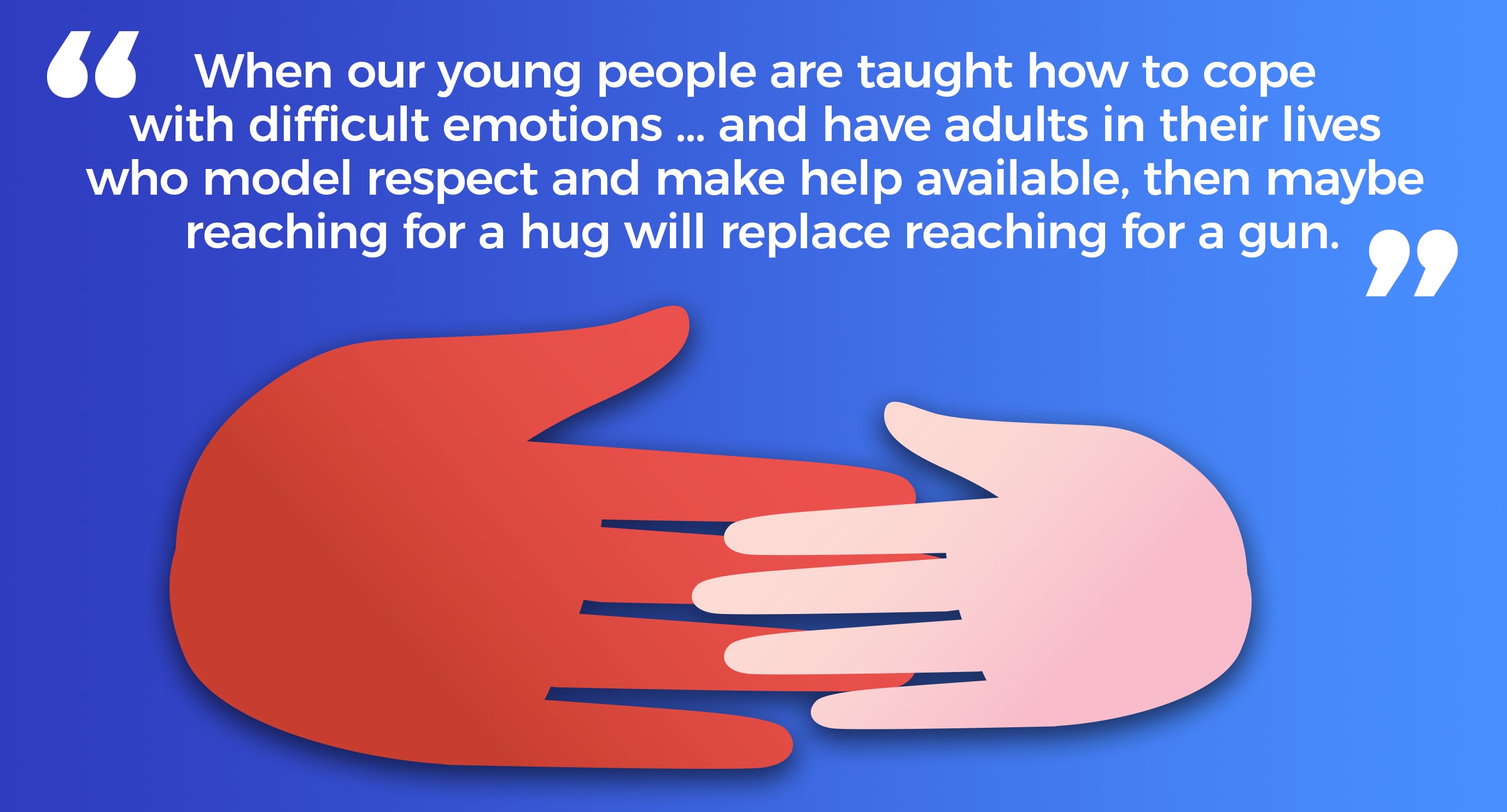Reescribiendo el guión de la violencia en el noviazgo
Written by Agnes Aoki
In Parkland, Florida, a catastrophe – another disastrous school shooting, another young man with violent tendencies, another teen with access to a gun. The 19-year-old shooter had a history of abuse toward his ex-girlfriend and her new boyfriend.
In our line of work as advocates for survivors of violence and abuse, it has almost become a horrible script that we can recite from memory.
Last month in Italy, Texas, the story behind the shooting appeared to be one of anger, jealousy, and a lack of support. The shooter, a 16-year-old boy, became enraged after the girl he was dating broke up with him, several students told one news source. Thankfully, the young girl has been released from the hospital and is recovering.
Young men in these situations find themselves engulfed in emotions – emotions that they may not even be able to identify – and no one to talk to when they are overwhelmed.
The script of toxic masculinity tells youth that the only acceptable feeling is anger, and that the most appropriate response to anger is violence. Young people and children may not recognize the warning signs of a potentially abusive personality or be aware that a break up is when violence can escalate.
The script of femininity coaches girls to cater to the needs of people and society around them, especially a romantic partner.
What do we do?
The media and adults can teach youth how to rewrite these scripts.
Healthy relationships mean both partners feel accepted, valued, and whole. Each partner should respect the others’ choices and decisions and support them in achieving their own goals and interests. A healthy partner asks for consent and is OK when the answer is “no.”
These are messages that are not heard, seen, or practiced often enough. Young people need help in identifying their feelings, communicating assertively, and asking for help when they are overwhelmed.
Adult allies can be found wherever teens are: a school counselor, a kind teacher, a dedicated coach, a youth pastor, a beloved relative.
These adults can offer commentary that youth need to hear – “You are special.” “Trust your feelings.” “Thank you for sharing your concerns with me.” “You are not alone.”
When our young people are taught how to cope with difficult emotions, are loved for who they are, and have adults in their lives who model respect and make help available, then maybe reaching for a hug will replace reaching for a gun.